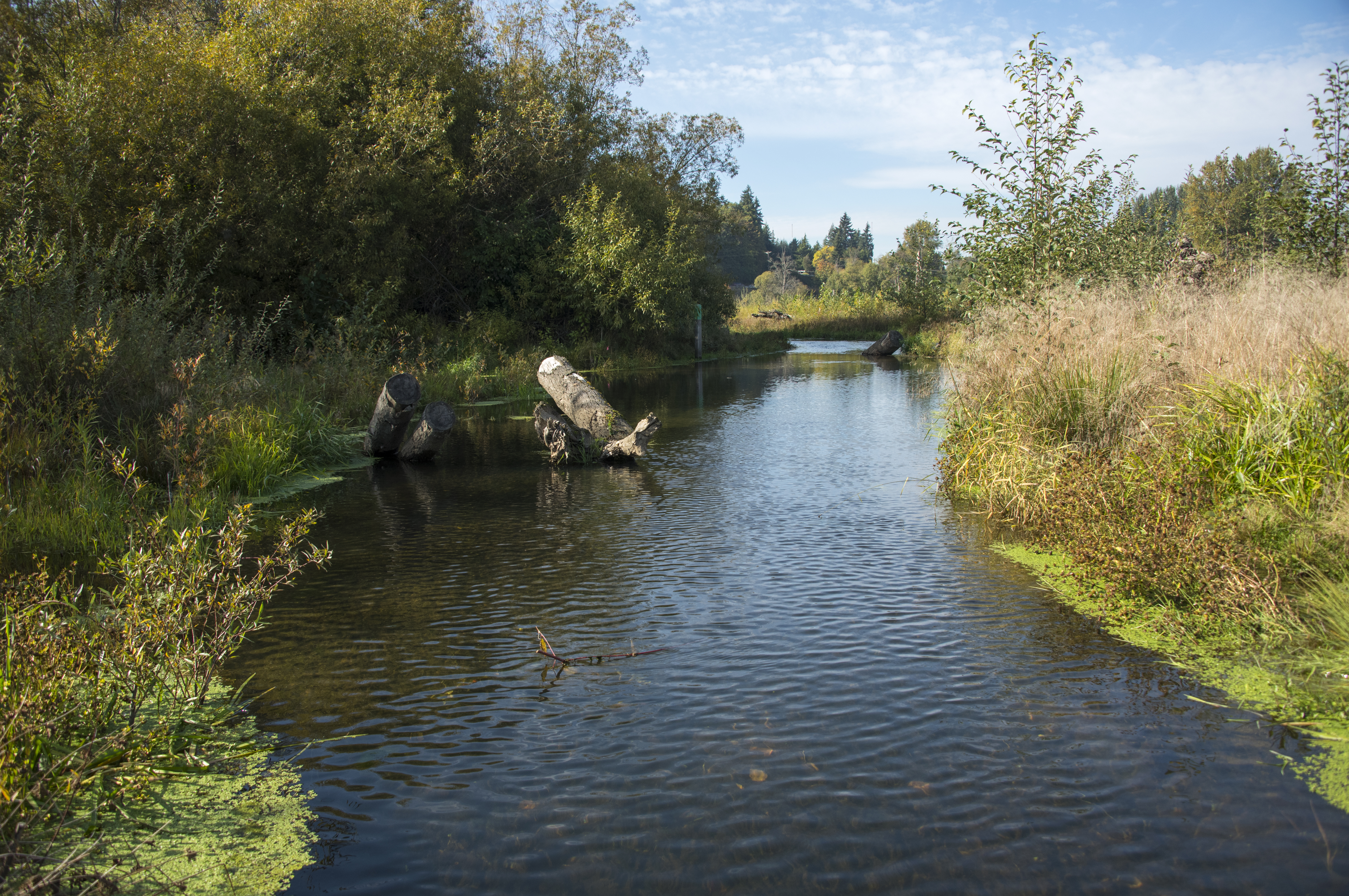
In early November, we will start seeking proposals for projects designed to improve and protect the overall health of Puget Sound’s riparian areas and make them more resilient to the detrimental effects of climate change.
Riparian zones include streambanks, riverbanks, floodplains, and other areas along streams and rivers where land and water meet. Known for their moist and mild microclimates, riparian areas have fertile soils that enhance plant growth and support complex food webs critical for many Puget Sound plant and animal species, including salmon.
New grant program a partnership effort
Our new Puget Sound Climate Resilient Riparian Systems grant program was developed in partnership with the Washington State Conservation Commission and Bonneville Environmental Foundation. Program grants are aimed at improving and protecting riparian areas and support Washington’s climate resilience strategy.
We are using $17 million in Bipartisan Infrastructure Law funding provided by the U.S. Environmental Protection Agency. Individual grant awards will be between $500,000 and $2.75 million.
Climate change challenges and riparian benefits
Climate change is threatening Puget Sound’s riparian areas with more frequent and intense storms, droughts, and floods as well as shoreline erosion, sea level rise, and saltwater intrusion. The region’s rapid population growth and related development continue to strain the environmental health of riparian areas.
We are seeking to fund projects that allow native trees and vegetation to thrive in riparian zones. Restoring and protecting healthy riparian areas in Puget Sound helps:
- Improve water quality by shading streams and filtering pollutants
- Slow down and control stormwater runoff during heavy storms and floods
- Reduce streambank and shoreline erosion
- Hold back freshwater to naturally protect and recharge underground aquifers
Grants specific to Puget Sound, wide range of eligible applicants
Projects proposed for grant funding must be in the 12 counties contiguous to Puget Sound: Clallam, Island, Jefferson, King, Kitsap, Mason, San Juan, Skagit, Snohomish, Pierce, Thurston, and Whatcom.
Eligible applicants include cities and counties, Tribes, conservation districts, institutions of higher education, and nonprofit organizations. Applicants will identify suitable riparian restoration and improvement projects for funding, particularly those involving farmers and private landowners.
Grants might be used to pay for conservation easements and other measures to protect riparian lands from future development. Some federal funding may also be invested to help ensure an adequate supply of trees and vegetation is available to be planted at project sites.

